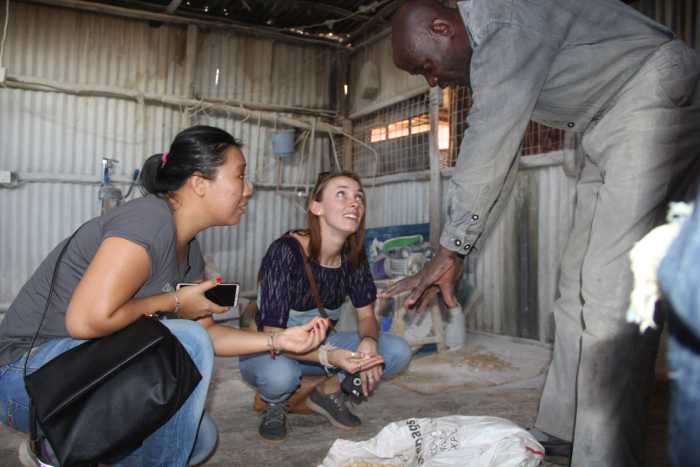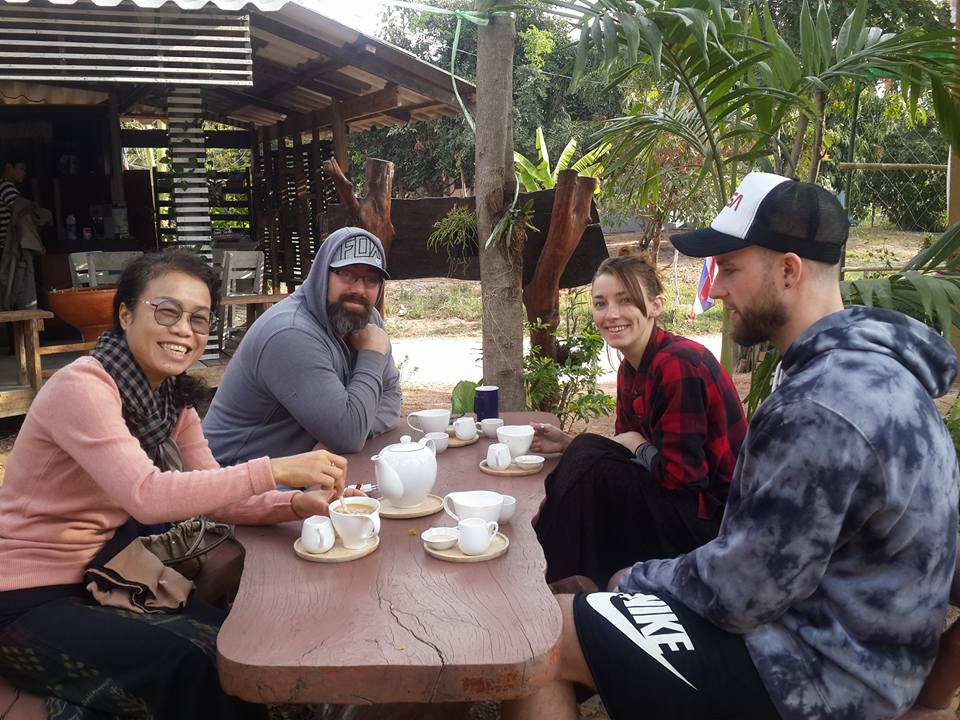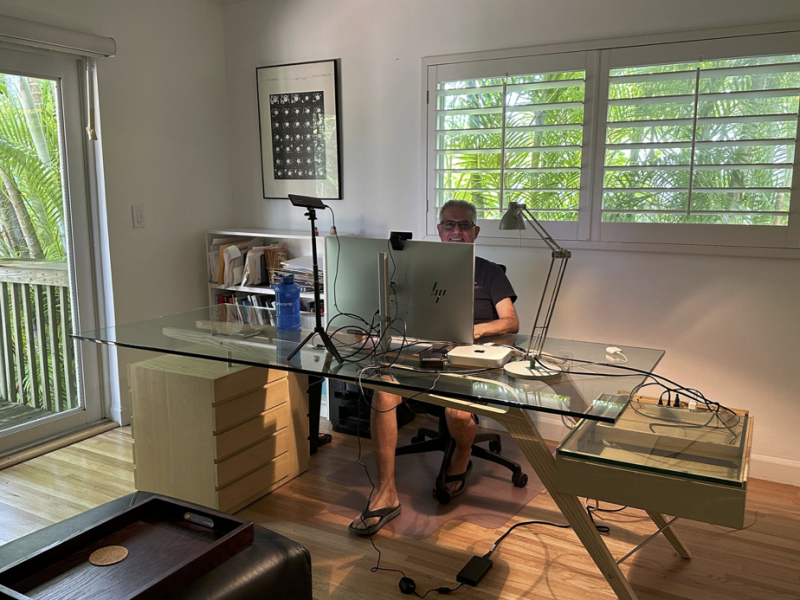
How to use ethnographic research to tell a meaningful brand narrative
How to use ethnographic research to tell a meaningful brand narrative https://www.visualstorytell.com/wp-content/uploads/2018/10/ethnographic_thumb.jpg 370 218 Tory Gentes Tory Gentes https://secure.gravatar.com/avatar/26427091b0bf435528a47b5b145ab7723a2aec5e5781357ecb830bfd6832cbf1?s=96&d=mm&r=g- Tory Gentes
- no comments
Watch my video recording on the Visual Storytelling Today show:
On the road?
You can also listen to my audio podcast of this episode.
Subscribe to the Visual Storytelling Today podcast on iTunes or Google Play
The secret sauce for creating an effective brand narrative that will move your target audience into action really depends on the level brands get to know their target customer persona. It’s those human stories that bring to life why your audience think, feel, do and say in a particular way – in relation to a problem your product is aimed to solve.
First a bit more about me.
I reside mostly out of my suitcase; however, I have roots in New Hampshire and a strong affinity for living in Colorado. I have a deep love for travel and people, which has helped set the foundation for her journey into qualitative market research as an immersive ethnographer.
I have been throughout North America, Africa, and Asia collecting ground-level insights from individuals, CEOs, founders, NGOs, and community members that she leverages to solve strategic business questions. With a background in entrepreneurship, leadership, and business, I have also managed numerous initiatives for Academic Institutions, NGOs, businesses and international organizations.
I’ve found her specialty and expertise at the nexus of culture, human behavior, and marketing. Specializing in immersive research methodologies, I have conducted focus groups, in-depth interviews, ethnographies, ideation sessions, surveys, and workshops.
As a partner in The Palmerston Group, I work with big brands to help uncover the unspoken nuances of their consumers and bring them to life (beyond their buying habits). In a world of big data, I help answer the WHY behind human behavior.
Here are a few excerpts of what I discussed in depth in this Visual Storytelling Today episode:
What’s the definition of ethnographic research and what are the main research categories?
Ethnographic research has a different meaning in academia and business. In business, ethnographic research helps brands to learn more about their consumers. I define it as ground-level insights that are collected by engaging and participating in the topic at hand. The topic could be driven by the product or service people are engaging in or by the group of people themselves. Ethnographic research really describes the methodology used to collect insights. Just how surveys collect quantitative data, ethnography collects qualitative data that numbers and surveys can’t collect because you have the human component/factor.

This is taken in a Kenyan slum to understand the life of local artisans. It’s a perfect example of becoming the consumer and walking through the process of their business operations to understand how they are situated in the market and how they can better streamline the business to reach a wider audience.
What business objectives does ethnographic research serve? And what are the typical needs brands are after?
Ethnographic research is really one methodology under the umbrella of qualitative market research. When you think of traditional qualitative market research, you should conjure up images of the two-way mirror – participants on one side, clients on the other. A moderator guides the conversation with participants about the topic at hand.
While focus groups are still largely practiced as a main qualitative methodology, I prefer to get outside the facility and use the world as my focus group. Organic and authentic interactions are happening every day between consumers and there’s no better place to “study” than where the action takes place. This is where we utilize ethnographic techniques to build research design that mirrors real life and uncovers authentic insights.
Every project is unique and brands are looking to uncover everything from broad-level insights, “tell me about life as a Canadian teenager,” to very specific insights, “how do our consumers feel about this advertising concept.” Qualitative market research can come at any stage of business development, from start-up to legacy. Though not limited to, it can be used to help guide a brand’s market positioning, concept/product testing or positioning, develop consumer personas, explore new/untapped markets, determine brand health/awareness, and bring brand’s closer to their consumers. This work can also help companies understand their employee engagement. It’s much easier to get employees to share authentic thoughts with a third party vs. their upper management.
How to use the power of ethnographic research to tell a meaningful story?
I believe without ethnographic research, a meaningful story cannot exist. The best stories are those where the storyteller has experienced or at least can empathize with the content of the story. It’s a building process whereby the ethnographic researcher must utilize genuine empathy to create a safe space of openness and sharing among participants – both consumers and client brands. The ethnographic researcher is simultaneously collecting and hearing the story of consumers as well as their client (the brand).
It’s not only a story of the consumer, but the researcher needs to put context around the business questions at hand to understand WHY it needs to be solved. The ethnographic researcher has the responsibility to keep genuine and authentic consumer insights while also sharing their story in a way the client is most likely to actually “hear it.” In other words, if the consumer story doesn’t speak to the clients’ challenges and business problems, you’re insights are pointless.
How does the end-to-end process look like?
A typical process is as follows, the brand will engage our services and they typically come to us with some business objectives they want to uncover in the research. The objectives can be very high level or direct and specific. We then develop the “methodology” – this is the fun part. We very much keep an open mind and “no rules” attitude, meaning we go places other researchers won’t go.
 While our projects are both domestic and international, this is in Thailand where I embedded myself in a small farming village to help an NGO develop a revenue generator for their non-profit efforts. We built the villages first sit down, wifi enabled, a coffee shop that would bring in revenue for the NGO, but also provide a venue for their workshops and English education courses.
While our projects are both domestic and international, this is in Thailand where I embedded myself in a small farming village to help an NGO develop a revenue generator for their non-profit efforts. We built the villages first sit down, wifi enabled, a coffee shop that would bring in revenue for the NGO, but also provide a venue for their workshops and English education courses.
Every project’s methodology is customized to best evoke authentic insights from the target consumer audience. This is the bread and butter. In addition to designing the methodology, we also design the discussion guide (an outline of questions). The “secret sauce” is in the project design and the authenticity we bring to each conversation. We have become very skilled at creating a safe space for people to share their deeper thoughts and attitudes. Much of the art in qualitative research exists “in the field” – you never know WHO you might talk to and it’s our job to adapt our communication style to fit each individual we interview.
For example, some people are very comfortable speaking in emotions, while others are very practical and tangible. No matter the style, it’s our job to get underneath the surface. We will often include a documentary style video component to our reporting where our clients get to experience and see their consumers in action. Our reports authentically capture the stories of human consumers while also add depth and data to the brand’s strategic business questions.
Want to learn more? Book a FREE conversation to find out how to leverage your key customer behaviors in your business stories.
Tory Gentes
Tory resides mostly out of her suitcase; however, she has roots in New Hampshire and a strong affinity for living in Colorado. She has a deep love for travel and people, which has helped set the foundation for her journey into qualitative market research as an immersive ethnographer. Tory has been throughout North America, Africa, and Asia collecting ground-level insights from individuals, CEOs, founders, NGOs, and community members that she leverages to solve strategic business questions. With a background in entrepreneurship, leadership, and business, Tory has also managed numerous initiatives for Academic Institutions, NGOs, businesses and international organizations. She’s found her specialty and expertise at the nexus of culture, human behavior, and marketing. Specializing in immersive research methodologies, Tory has conducted focus groups, in-depth interviews, ethnographies, ideation sessions, surveys, and workshops. As a partner in The Palmerston Group, she works with big brands to help uncover the unspoken nuances of their consumers and bring them to life (beyond their buying habits). In a world of big data, Tory helps answer the WHY behind human behavior.
All stories by: Tory GentesYou might also like
This site uses Akismet to reduce spam. Learn how your comment data is processed.





Leave a Reply